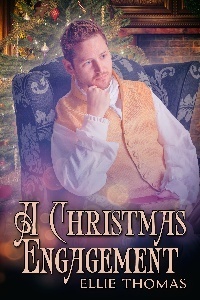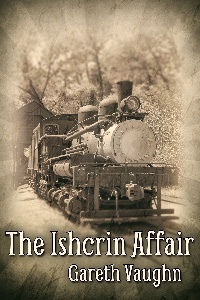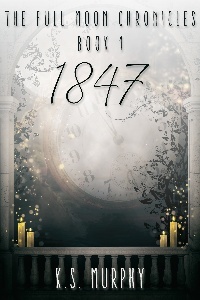Erotic Romance
- Erotic Romance
- Action/Adventure
- African-American
- Alternative (M/M, Gay)
- Anthology
- BDSM
- Chick Lit/Hen Lit
- Contemporary
- Erotica Fiction
- Fairy Tales/Myths
- Fantasy
- Futuristic
- Gothic
- Historical
- Horror/Twisted Tales
- Interracial
- May-December
- Menage a Trois/Quatre
- Multiple Partners
- Older H/h
- Paranormal
- Regency
- Romantic Comedy
- Romantic Suspense
- Rubenesque
- Science Fiction
- Shape-shifter
- Short Stories
- Time Travel
- Vampires/Werewolves
- Western/Cowboys
Mainstream Romance
- Mainstream Romance
- Action/Adventure
- African-American
- Anthology
- Bittersweet/Tragedy
- Chick Lit/Hen Lit
- Contemporary
- Fairy Tales/Myths
- Fantasy
- Futuristic
- Gay/Lesbian
- Gothic
- Historical
- Horror/Twisted Tales
- Inspirational
- Interracial
- Medical
- Paranormal
- Regency
- Romantic Comedy
- Romantic Literature
- Romantic Suspense
- Rubenesque
- Science Fiction
- Shape-shifter
- Short Stories
- Time Travel
- Vampires/Werewolves
- Western/Cowboys
- Women's Fiction
- Young Adult
Non-Fiction
- Art
- Biography & Autobiography
- Business
- Chemistry
- Children Nonfiction
- Computer Technology
- Cooking & Food
- Current Events
- Education
- Entertainment
- Ethics
- Family & Relationships
- Finance
- Folklore
- Gay/Lesbian Nonfiction
- Gender Studies
- General
- Grammar & Language Usage
- Health & Fitness
- History
- Humor
- Language Arts
- Medical
- Military
- Nature
- New Age
- Outdoor Recreation
- Performing Arts
- Pets
- Philosophy
- Political Science
- Professional
- Psychology
- Recovery
- Religion & Spirituality
- Self-Improvement
- Sociology
- Sports & Recreations
- Study Aids & Workbooks
- Text Book
- Travel
- Women's Studies
- Young Adult Nonfiction
A Christmas Engagement (MM)
JMS Books LLC
In 1805, Charles Denham’s comfortable life in Regency London with his long-term partner Avery Mallory is disrupted by the sudden death of his father. As the heir to a modest country estate in Gloucestershire, Charles returns home to care for his bereaved family and take up his new responsibilities.
Overwhelmed with grief, rather than leaning on Avery, Charles becomes fixed on the idea of taking a wife for reasons of family duty alone. With this plan in mind, he travels the short distance to Bath only to find that Avery and his family have already arrived at the resort.
Will Charles follow through with his ill-conceived plan for a hasty betrothal by Christmas? Or will he come to his senses and resume his relationship with the nicest man in England?

A Christmas Engagement (MM)
JMS Books LLC
Charles paused before saying clearly and deliberately. “With Papa’s passing, it seemed expedient to start to look out for a wife.”
He heard Avery's sharp intake of breath as Aunt Clarissa looked at him shrewdly. Her bright, old eyes, darker and sharper than Avery’s, seemed to pierce his soul. “You have come to the right place,” she remarked. “Far better to make your selection at your convenience in Bath than to be bothered with the fancy folderols of the London Season. I might be biased as I have fond memories of the place. The town will never be the same as in the heyday of Beau Nash, but it still passes muster, although I say it myself. And you should find a wide array of suitable ladies now you are resolved on matrimony.”
Charles had the sneaking suspicion that Aunt Clarissa was laughing at him and was spared further embarrassment by the timely approach of Mr. King.
“Ladies,” Mr. King uttered, addressing the group. “Might I interest you in a game of Cribbage at the Card Room tonight? The tables are filling up quickly, and I’d be glad to put your names down. From experience, these events prove very popular and can be over-subscribed.”
That popularity was confirmed by eager fluttering from the group of ladies, mercifully distracting Aunt Clarissa’s attention away from Charles.
Charles' dearest hope was for Avery to have melted away into the surrounding throng during the conversation. Having only begun to establish himself in the confines of Bath’s society, Charles could not afford to cause gossip or general disgust by delivering a cut direct. And in truth, he flinched from being unnecessarily and publicly cruel. None of this was Avery’s doing. He must simply accept that Charles’ priorities had altered with his father’s death.
But when Charles glanced around, Avery was still standing there. He looked a trifle pale at Charles’ announcement but managed a smile as he said conversationally, “You must wonder why we are here. I’m sure you remember all those letters from my aunts pressing Aunt Clarissa for suggestions for her seventieth birthday celebrations?”
Charles nodded as he remembered their shared London rooms in Rupert Street, Avery’s face alight with laughter as he passed Aunt Clarissa’s typically scathing letter over the breakfast table for Charles’ amusement, in a gesture of everyday intimacy.
“Well, Aunt Clarissa refused to be contained by any sedate or convenient notions and decided to drag us all to Bath for the occasion, complete with a hired house on The Circus. According to her, since she's in her dotage, she won't get another opportunity to relive her past successes or criticise the current fashions and assembled company at the top of her voice. As you can imagine, both my aunts are thrilled.” Avery’s mobile mouth quirked with humour, and Charles was almost tempted to smile with him until Avery asked, “What does your mother think of your resolution to marry?”
Avery was still smiling, but his eyes seemed almost as shrewd and watchful as Great Aunt Clarissa's. Charles was only glad that the necessarily loud interchange between the Master of Ceremonies and a lady of the party who was hard of hearing masked the personal turn of the conversation.
“She is delighted I’m assuming my obligations in seeking to establish our family connections.”
“Is she?” Avery sounded mildly surprised. “I’d have thought she would be far more concerned about your happiness and state of mind.”
“I am happy,” Charles retorted.
“If you say so,” Avery smiled agreeable before asking casually, “and since when have you been attracted to women?”
Charles bristled, “What’s that got to do with anything?”
“Everything, I’d say if you seek marital accord.” Avery had the gall to look faintly amused as Charles cast around for a suitable retort, stumbling over half-remembered phrases he had recited to his mama. As Charles reeled off homilies on duty and family responsibility, Avery’s smile faded. But rather than displaying the outrage or bitterness of a repulsed lover, Avery’s expression was full of compassion, tinged with sadness.
Charles completed his speech, sounding pompous and prematurely middle-aged even to his own ears. Avery opened his mouth to impart an urgent observation before hesitating. Instead, he patted Charles on the arm, saying, “I’m sure you know best, Charles,” in a manner that implied no confidence whatsoever in his former lover's judgement.
People Also Bought:
Need Help?
Siren-BookStrand Portal | Privacy Notice | Disclaimer | Content Restrictions




















